
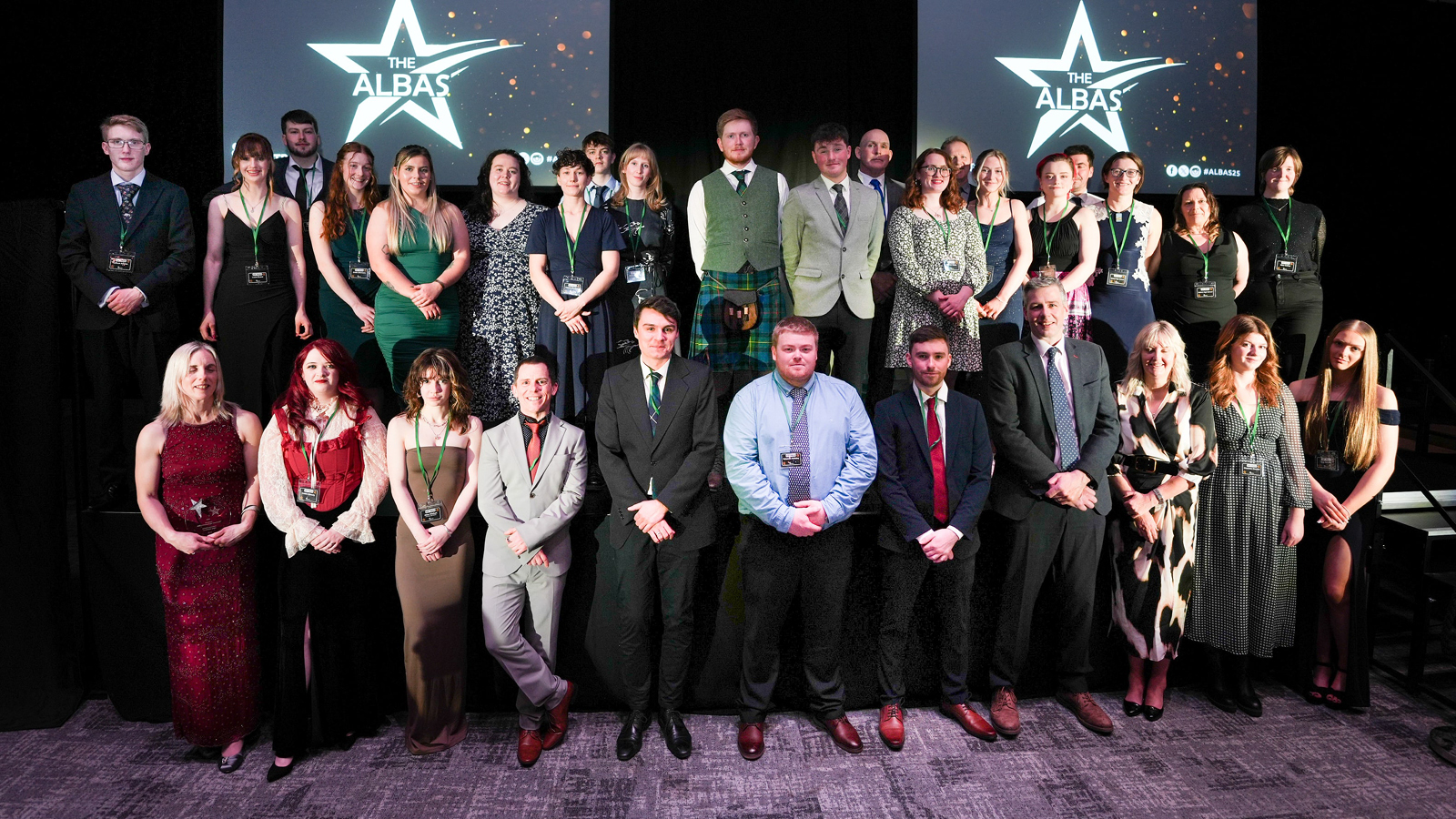
Scotland’s top land-based and aquaculture trainees, modern apprentices and training providers have been recognised in the annual ALBAS awards for land-based and aquaculture skills.
Over 200 finalists, event supporters, employers, training providers and industry leaders attended the glittering Lantra Scotland’s ALBAS 2025 awards ceremony. Industry awards were presented for agriculture, aquaculture, equine, game and wildlife, horticulture, land-based engineering, trees and timber, and veterinary nursing.
The Anna Murray Partnership Working Award went to Borders College, Borders Machinery Ring and Tarff Valley, who are working together to deliver a course aimed at developing the next generation of agricultural professionals.
Highly Commended for the same award was the South of Scotland Skills Partnership, one of SFC’s Pathfinders programme projects. Working with other stakeholders in the region, Scotland’s Rural College (SRUC) and Borders College collaborated to develop a joint prospectus for learning and innovation in the land-based sector. The outcomes of the complete SFC Pathfinders programme will be published on 18 March.
Details of all the ALBAS 2025 winners and runners-up can be found on the Lantra Scotland website.

Photo (left to right): Newbattle Abbey College, UHI Perth, Fife College, City of Glasgow College
The latest Scottish Funding Council (SFC) College Statistics report highlights a promising increase in the number of 18 – 19 year olds choosing full-time study at Scotland’s colleges. Drawing on newly collected data trends from the past decade, the publication presents a broad picture of college education since 2014-15.
A key development was SFC’s strategic move to reduce the annual target number of learning hours (credits) by 10% for the 2023-24 academic year. Designed to help align the system more closely with anticipated student activity, the change also had the benefit of increasing the investment in each individual student’s learning.
The college sector successfully delivered 100% of its 1,552,851 credit target in 2023-24. There had been an almost 2% under-delivery in the previous academic year.
Although overall student headcount and student enrolments declined in 2023-24, there was a notable increase in Scotland’s 18 – 19 year-olds participating in full-time college education; the first rise in three years. Analysis shows this was due to the twin effects of a decreasing 18 – 19-year-old population and an increase in numbers of that age group studying full time.
Francesca Osowska, Chief Executive of the Scottish Funding Council, said:
“Increasing our ability to use data to produce a detailed and accurate picture of tertiary education is an important part of SFC’s work and will lead to even more responsive and agile decision-making.
“I’m pleased to see confirmation of the sector’s 100% delivery against the activity target. It’s also encouraging to see evidence of how a more active approach to forward planning can benefit colleges, and align funding to changes in the demand for places.”
College Statistics 2023-24 is now available on the SFC website.
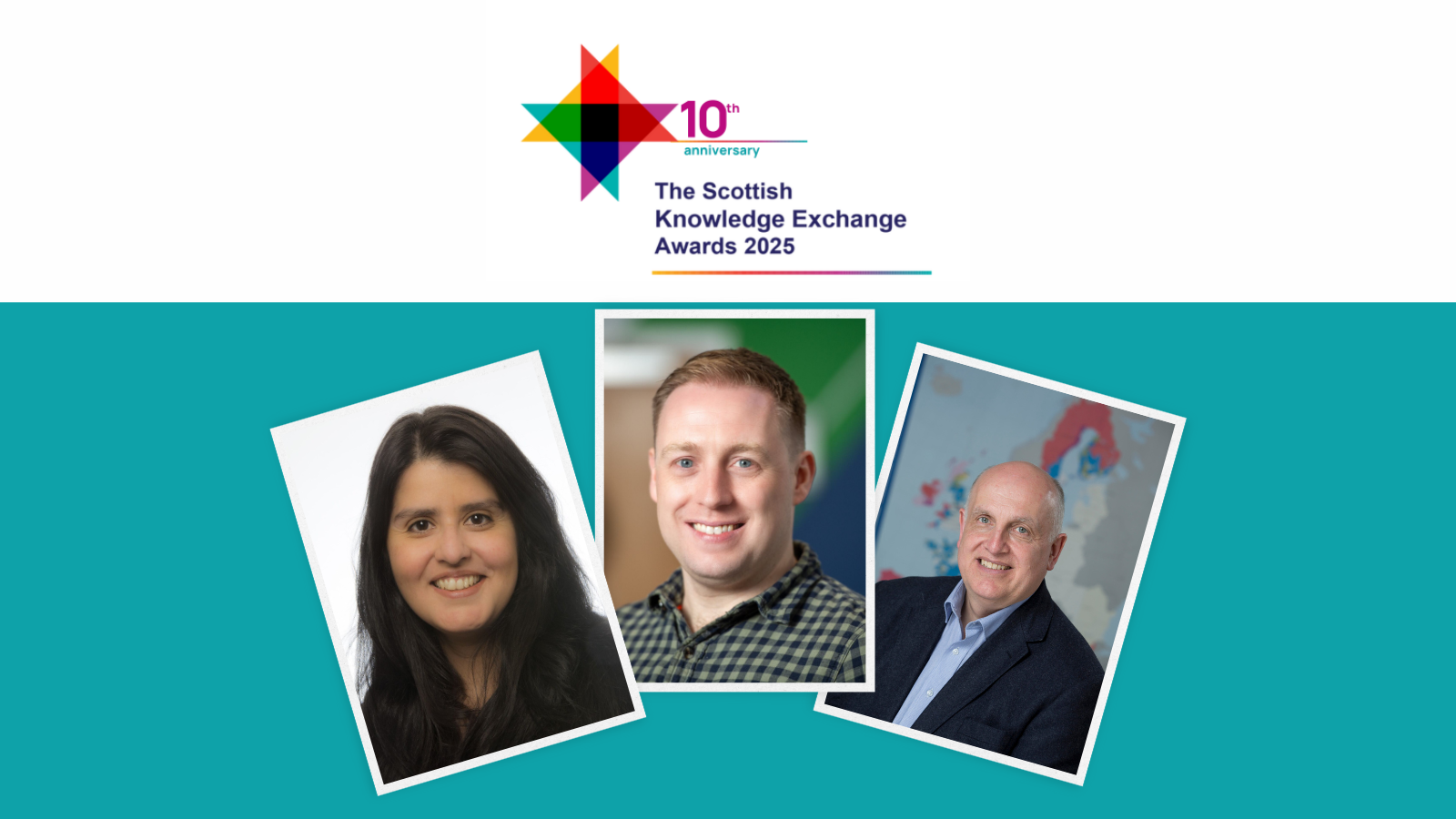
Revolutionary developments in renewable energy, mental health, education, sport, medicine and food and drink have made it to the finals of the 10th Scottish Knowledge Exchange Awards highlighting the diversity of sectors and disciplines thriving in Scotland.
With 32 individuals, teams and projects shortlisted across 10 categories, the 10th anniversary celebration will be the largest to date.
Amelia Whitelaw, Director of Interface, which organises the Awards, said:
“At Interface, we are proud to deliver the Scottish Knowledge Exchange Awards on behalf of Scotland’s vibrant innovation ecosystem.
“These awards are more than just a celebration of achievements—they showcase the transformative power of collaboration between academia and industry. Each finalist represents the spirit of partnership, driving solutions that create lasting economic, environmental, and social impact.
“As we mark the 10th anniversary of these awards, we are inspired by the breadth and depth of innovation thriving across Scotland, reaffirming our commitment to fostering connections that unlock new opportunities and strengthen Scotland’s future.”
The awards ceremony will take place at Edinburgh Futures Institute on 19 March.
The full list of finalists is now available on the Interface website.

Photos (left to right): University of Aberdeen, Borders College, Robert Gordon University
Computing and cyber security students at universities, colleges and schools have been sharing their experiences in a bid to attract more South of Scotland school pupils to study technology.
Meet the Learner sessions were first piloted in 2023 by Dumfries & Galloway College and Borders College as part of the Scottish Funding Council’s Pathfinder programme. The pilot project was also supported by Developing the Young Workforce funding and Scottish Borders Council.
The two colleges now run Meet the Learner sessions for schools across the South of Scotland and hope the initiative will help address the digital skills gap and support the region to become more competitive in the technology economy.
The sessions are designed to allow pupils considering a career in technology to hear from those already studying technical subjects. The idea is to inspire them to follow suit and begin a learning pathway that will lead them to the digital technology workplaces of the future.
Hundreds of pupils have now taken part in online Meet the Learner sessions and figures suggest that over 70% of them would be more likely to consider taking a course in computing as a result.
During a carefully designed series of events, pupils are led through different stages of the learning pathway. The tech student presenters talk openly about how they chose their course, what they enjoy about it and what they are aiming to do afterwards.
Francesca Osowska, Chief Executive of the Scottish Funding Council, said:
“The Pathfinder programme is all about exploring how we can make the education and skills system more responsive, more integrated, and more able to support regional economies.
“This is a brilliant example of creative thinking, innovative partnerships and focusing on making things better for learners.
“I hope the success of Meet the Learner in the South of Scotland will encourage other colleges and other regions to develop similar initiatives so the benefits of the Pathfinder programme can be spread as widely as possible.”
Lesley Broadwood, Skills Lead at Dumfries & Galloway College, and Project Lead for the Digital Pathfinder said:
“It has been fantastic to see the extent to which this programme changes the perceptions of young people, making it more likely for them to want to take a course in Computing Science.
“This initiative provides a new way to help encourage young people to consider a career in tech, which is especially important when one in ten of all Scottish job vacancies are within the tech sector.”

Photo: University of St. Andrews
The Scottish Funding Council (SFC) has published phase two of its latest Report on Widening Access.
The two-phase approach is the result of a delay in receiving data from sources outside SFC, and the new version completes the findings of the study of student populations for 2022-23.
The first phase, published in October, established that both the number of care-experienced students and their percentage within the total higher education student intake had continued to increase every year since 2013-14.
With the inclusion of data on retention rates, the full report looks at the proportion of undergraduate Scottish students returning to study for the second year of their course, including those from disadvantaged areas and from care-experienced backgrounds.
In both these groups, and for the overall student population, retention levels fell in 2022-23, with the overall level falling by 3.5 percentage points. For students from Scotland’s most deprived areas the decrease was 5.5 percentage points and the figure for care-experienced students dropped by 6.4 percentage points.
Martin Boyle, Interim Chief Executive of the Scottish Funding Council, said:
“Previous SFC reports covering the period of the COVID 19 pandemic have reflected its various impacts on college and university students.
“We believe there are complex ongoing reasons for the impact on retention levels we’re seeing in this report, and these could involve factors such as the special measures introduced for assessing students’ performance across the system, including for exam results and entry to university.
“SFC sees the successful completion of degree courses as a vital part of our ongoing work for widening access and we will be further exploring the reasons for this change.
More widely, we will continue to work alongside colleges and universities to make sure that talented students from all parts of society flourish within Scottish tertiary education.”
The full Report on Widening Access 2022-23 is now available along with supporting materials.

Photo: University of Glasgow
The findings of a review of the National Schools Programme have been published today as part of an assessment of the programme’s operation and impact.
Set up in 2021, the National Schools Programme brings together existing SFC-funded initiatives into a unified, national scheme to support fairer access to university for economically disadvantaged learners. Pupils eligible for the programme take part in visits to university campuses, attend special skills development courses and receive additional levels of advice, guidance and support. It currently supports over 50,000 pupils across Scotland each year.
The findings confirm the National School Programme is important in creating fair access to university but suggests more could be done to demonstrate its impact. The report makes 15 recommendations including setting up a system to better monitor and evaluate the programme. It also identifies areas for further development, including harmonising conditions for eligibility and identifying a minimum standard offer to all eligible pupils.
Martin Boyle, Interim Chief Executive of the Scottish Funding Council, said:
“The National Schools Programme plays a valuable part in efforts to create a level playing field for people to benefit from a university education. From an economic perspective, it helps ensure that talent and ability is supported and encouraged across the whole of society.
“This review is therefore an important piece of work and the recommendations coming out of it will ensure it will evolve into an even stronger and more effective programme for the future”.
Following today’s publication of the review report, work will begin to implement its recommendations through a new strategic advisory group and collaborative taskforces.
The National Schools Programme Review Final Report and Recommendations is now available.

Photo: City of Glasgow College
The WorldSkills UK National Finals 2024 took place last week in Greater Manchester.
After two full days of competitions in almost 50 skills at venues throughout the region, the event culminated at Manchester’s prestigious Bridgewater Hall.
Scotland was represented at the finals by 36 students from six colleges, all of whom had won through in regional finals to gain their coveted place in Manchester. They competed in skills that included digital construction, mechanical engineering and heavy vehicle technology.
From Scotland’s 36 finalists, no fewer than 22 received medals or were highly commended at the awards ceremony, and New College Lanarkshire came first in the medal league table with 32 points; ten points ahead of second place. Scotland had two gold medallists in Lennon Bulloch from New College Lanarkshire who won gold in the Digital Construction category and Luke Clayton, also from New College Lanarkshire who won gold for his skills in computer-sided design in mechanical engineering. A third gold medal for Scotland and New College Lanarkshire came in the Network Infrastructure Technician competition where cyber security student, Cryptic Nexus, took the top award.
Scotland was also represented by three exceptional students from New College Lanarkshire in the Foundation Skill competitions designed for students who have a statement of Special Educational Needs and/or disabilities.
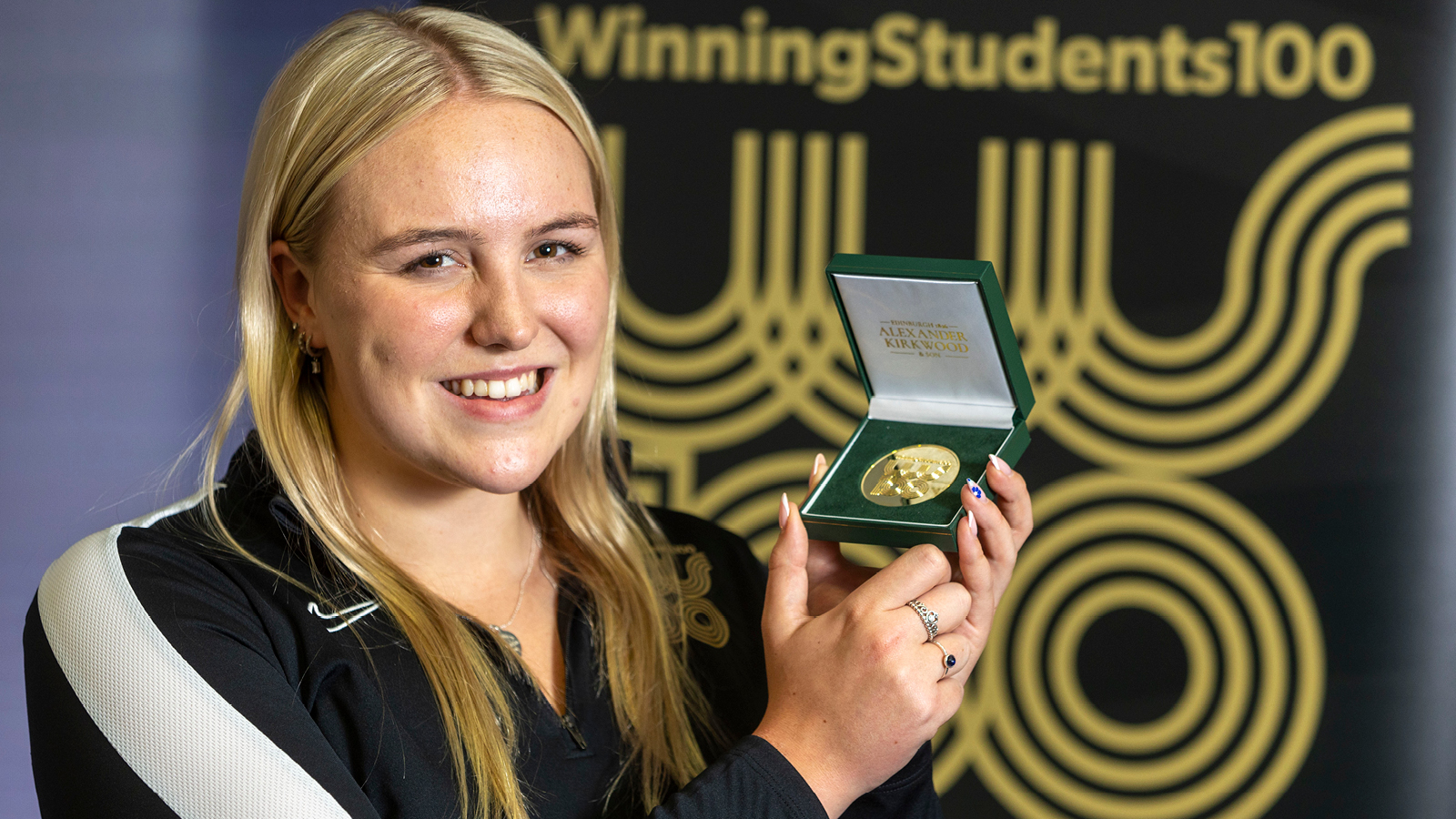
Photo: Jeff Holmes
The André Reibig Medal has been awarded by Winning Students 100 to the inspirational Faye Rogers who won a gold medal in this year’s Paris para-Olympics.
The medal was created in memory of the person who was instrumental on behalf of SFC in establishing and developing the highly successful Winning Students programme (now known as Winning Students 100). André worked tirelessly as an early adopter, key adviser and passionate advocate for the programme.
Faye Rodgers, who studies biochemistry at the University of Aberdeen, made a remarkable recovery from a life-changing car accident three years ago to thrive as a para-swimmer, culminating in her success in Paris. Her twin achievements in her studies and in her sport commended her for the medal for which the key criteria are progression in sport; resilience and adversity; and high levels of performance.
On learning of her achievement, Faye said:
“It’s a lovely accolade to receive. When you are racing you know what the prize is depending on where you finish, however this award arrived completely unexpectedly and it’s particularly pleasing to be recognised not just for my sport but for how hard I work to balance my studies alongside that.”
“I’m really honoured to be the first recipient and very grateful to André’s family and to André for his support behind the Winning Students programme.”
Martin Boyle, Interim Chief Executive of the Scottish Funding Council, said:
“André was special both as a person and as a colleague, and he took great pride in all the projects in which he was involved. This was especially true for Winning Students where his passion for education and for sport came together in something he cared about very much.
“Awarding the Winning Students 100 medal in André’s memory means a lot to everyone who knew him and is a wonderful way to honour and remember him. Faye Rogers is a very deserving recipient of the inaugural medal and I would like to wish her every success in her sporting and academic future.”
With funding from the Scottish Funding Council and sportscotland, and in partnership with Scotland’s tertiary education sector, some 111 individuals will be supported by Winning Students 100 this academic year. The programme supports student athletes to balance their studies with high performance training and competition.
You can read more on this story on the Winning Students 100 website.

Photos: UHI Perth, Forth Valley College, Dundee and Angus College
The 2024 CDN College Awards took place last night in Glasgow with winners selected from over 160 inspiring entries highlighting the fantastic work of Scotland’s colleges.
The master of ceremonies for this year’s awards was TV personality, Amy Irons, who has presented on the BBC’s Hogmanay broadcast and Sports Personality of the Year. The guest speaker was the Minister for Higher and Further Education, Graeme Dey, and the 230 guests enjoyed entertainment from Musical Theatre & Theatre Industry Practice students from UHI Perth.
Winners were chosen under 14 categories. Dundee and Angus College carried off awards in no fewer than five categories and was also presented with the special Judges’ Award. The SFC-sponsored Research Project of the Year Award was won by New College Lanarkshire. Its Global Smiles initiative was an international project with partners in China, Mongolia and the Philippines which aimed to bridge skills gaps in dental health care through a research-based curriculum.
The Student of the Year Award was won by Sumi Bhandari for her resilience, ability to overcome obstacles, and determination to embrace opportunities.
The Award’s Shortlist Summary includes video submissions and has full details of all shortlisted entries.

Photo: Robert Gordon University
The 2024 Green Gown Awards UK and Northern Ireland were held yesterday evening at Edinburgh’s Dynamic Earth in a ceremony attended by over 300 people. The awards celebrate the very best of tertiary education’s work to tackle the climate emergency. This year’s awards showcased 133 finalists from 84 institutions across the whole of the UK and Ireland, including 19 finalists from 14 Scottish colleges and universities.
Edinburgh College was a joint winner of the Benefitting Society award for EC sessions, a project that welcomes young people from across Edinburgh to its inclusive and informal music gatherings. Forth Valley College was a joint winner in the Campus Health, Food and Drink category for its part in developing what is thought to be the UK’s first social impact auditing tool for the food and drink industry.
Christine Calder of Dundee and Angus College was crowned Staff Sustainability Champion, alongside Dr Noha Saleeb of Middlesex University. Christine was recognised for spearheading initiatives to embed sustainability into learning and teaching at the college.
Highly commended at last night’s awards was the University of Edinburgh for its community-led work at Edinburgh’s BioQuarter which introduces STEM careers into local schools and engages with local youngsters. Also highly commended was the University of Aberdeen for creating a publicly accessible sustainability dashboard to help organisations demonstrate progress towards net zero. The University of Aberdeen was further recognised in the SFC-sponsored Creating Impact category for its groundbreaking Student Relocation Travel Emissions Calculator.
Commenting on the results, Charlotte Bonner, chief executive of awards organiser EAUC, said:
“This year’s outstanding winners and highly commended entries for the Green Gown Awards UK & Ireland once again provide an inspiring and diverse array of initiatives, from impactful projects to passionate individuals, all dedicated to advancing sustainability.”

Photo: University of Aberdeen
The Scottish Funding Council (SFC) and the University of Aberdeen are pleased to announce the appointment of Dr Frances Medaney as the new Scottish Research Cultures Collaboration Manager (SRCCM). This key role, hosted by the University of Aberdeen on behalf of the Scottish higher education sector, will focus on advancing a collaborative vision for Scotland’s research culture.
The Scottish Research Cultures Collaboration Manager role was created to provide leadership, resources, and advocacy for positive changes and has been co-developed with the sector. The SRCCM will engage with universities, UK funding bodies, and the research community to promote best practices and drive systemic improvements, ensuring that Scotland remains at the forefront of research innovation.
Frances brings a wealth of experience in higher education and research management to the role, with a strong background in project coordination, stakeholder engagement, and a commitment to fostering inclusive, rewarding research environments. As SRCCM, she will champion collaboration and resource sharing, support the development of effective evaluation practices, and represent Scottish interests in UK-wide research culture discussions.
Frances will also work closely with SFC and Universities Scotland’s Researcher Development and Culture Committee to convene sector-wide events, facilitate working groups, and develop resources aimed at further elevating Scotland’s research culture.
Helen Cross, Director of Research and Innovation at the Scottish Funding Council, said:
”SFC is pleased to support the Scottish Research Cultures Collaboration Manager role. This new position has been developed in close collaboration with the sector and reflects our commitment to fostering a vibrant and supportive research environment across Scotland.
“We are delighted that Frances has been appointed and are confident that she will make a lasting impact on Scotland’s research culture, positioning us as a leader in innovative and inclusive research practices.”
Nick Forsyth, Vice Principal (Research), University of Aberdeen said:
“We are delighted to welcome Dr Frances Medaney to this critical role as the Scottish Research Cultures Collaboration Manager, hosted here at the University of Aberdeen.
“Frances’s leadership will be pivotal in uniting Scotland’s universities in a shared mission to foster a positive, inclusive research culture. Her appointment marks a significant step toward building a culture that not only supports but also celebrates the contributions of our researchers.
“Hosting this role at Aberdeen underscores our commitment to advancing research practices across Scotland, and we look forward to seeing Frances drive forward impactful initiatives that will strengthen our research community nationwide.”
Frances Medaney, Scottish Research Cultures Collaboration Manager, University of Aberdeen said:
“I’m thrilled to be taking up this new post in the Scottish research culture space. This role offers a unique opportunity to strengthen collaboration and support vibrant cultures across our diverse HE institutions, and I look forward to meeting with colleagues across Scotland to take this work forward.”

Photos: UHI Perth, Forth Valley College, Dundee and Angus College
The Scottish Funding Council’s latest survey of college student satisfaction and engagement shows overall satisfaction rates remain high.
Over 94% of full time college students studying on further education (FE) courses said they were satisfied with their college experience. For part time FE students the overall satisfaction rate was even higher at almost 96%. For both full and part time students on higher education courses, the satisfaction rates were still high at just under 90% (88% and 89% respectively).
The survey was carried out earlier this year with almost 95,000 students being asked for their opinion.
The results also showed strong recognition for efforts by college staff to encourage students to take responsibility for their own learning. There were also encouragingly positive responses to the idea that their time at college had helped students to develop knowledge and skills for the workplace.
Commenting on the results, the Scottish Funding Council’s Interim Chief Executive, Martin Boyle, said:
“Our annual survey of student satisfaction and engagement reflects the importance of the student voice in our work as Scotland’s tertiary education authority.
“Today’s results show high levels of overall satisfaction and reflect the continuing commitment of Scotland’s colleges to the quality of the student experience.
“It’s also good to see students taking responsibility for their own learning and feeling that their studies are preparing them well for the workplace.”
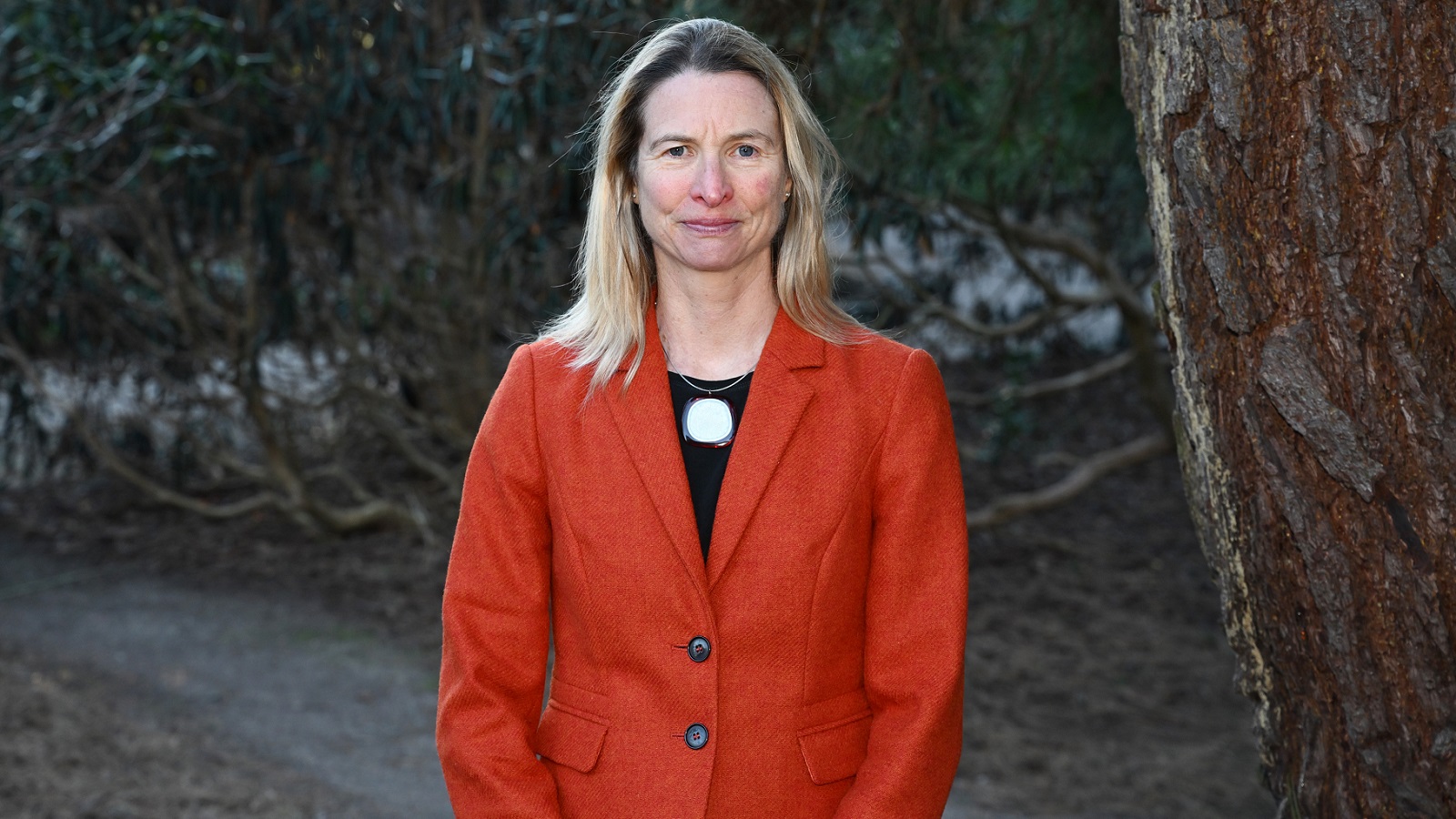
The Scottish Funding Council has today announced the appointment of Francesca Osowska OBE FRSE as its new Chief Executive.
The appointment follows a robust selection process supported by our recruitment partner, Gatenby Sanderson.
Francesca, who takes up the role in mid-January 2025, joins SFC from NatureScot where, as Chief Executive, she led a major change programme, rebranding and transforming the organisation to deliver a more focused and engaging strategy, delivering for people, communities and nature, with a clearer link to Scotland’s national priorities, including a particular focus on addressing the climate emergency.
Francesca brings with her a strong track record of strategic leadership, team and relationship building, and the successful delivery of major projects. Before taking up the helm at NatureScot, she held a key Whitehall post as Director of the Scotland Office, where she successfully repositioned the UK Government in Scotland, leading a more proactive communication and engagement strategy that secured improved relationships with stakeholders and the public. Immediately prior to that, as Scottish Government Director for the Commonwealth Games and Sport, she led the delivery of a successful, safe and secure 2014 Games for which she was awarded an OBE for services to Government and the Commonwealth Games in the Queen’s New Year’s Honours in January 2015. The Games were delivered within budget and continue to deliver a long-lasting legacy for the whole of Scotland.
An established strategic leader with strong insight into the workings of government at Scotland, UK and international levels, Francesca has a wealth and breadth of experience in public service, ranging from her role as Principal Private Secretary to the First Minister from 2007 to 2009, through posts in education, justice, culture, external affairs, tourism, housing and regeneration, to her most recent post as CEO of NatureScot and its focus on the natural environment, research and science.
Welcoming the appointment, Higher Education and Further Education Minister, Graeme Dey, said:
“Congratulations to Francesca on her appointment as Chief Executive. I very much look forward to working with her as we set about delivering our planned reforms to post-school education”
Mike Cantlay OBE, Chair of SFC said:
“I am delighted to welcome Francesca to SFC. She joins us at an important time in the evolution of the organisation. Her skills as a strategic leader and her superb record of delivery will be crucial as SFC continues to evolve through the reform agenda.”
Commencing on her appointment, Francesca said:
“It is a huge privilege to join SFC and have the opportunity to lead an organisation that plays such a pivotal role in supporting learners to succeed and researchers and innovators to address the challenges facing Scotland and the world at large.
I look forward to working with the SFC team, the sectors and our wider stakeholders as we maximise the opportunities and navigate the challenges ahead.”
Francesca is a graduate of the University of Cambridge where she read Economics and a graduate of the College of Europe in Bruges where she read European Studies (Economics).

Photo: University of St. Andrews
New figures show that almost 1,800 people from a care experienced background began an undergraduate higher education course at a Scottish college or university in 2022-23.
The finding comes in the latest Scottish Funding Council (SFC) Report on Widening Access and represents progress towards SFC’s ambition to ensure care experienced students are fairly represented at college and university. According to today’s report, both the number of care experienced students and their percentage of the total higher education student intake have increased every year since 2013-14.
The report also shows that 16.3% of Scots starting a full-time degree course at university came from the country’s 20% most deprived (SIMD20) areas. This is slightly down from the 2021-22 figure of 16.5%.
Looking more widely at tertiary education overall, 18.7% of entrants to undergraduate higher education courses were from Scotland’s most deprived areas representing a 0.4% decrease on the previous year.
Martin Boyle, SFC’s Interim Chief Executive, said:
“Attracting more young people from a care experienced background to college and university is an important part of our work towards fairer access and I’m pleased to see progress reflected in today’s report.
“Elsewhere, we’re seeing a small reduction in the proportion of SIMD20 students starting higher education courses. This is an indication of the challenges we face but does not diminish our commitment to creating a more equal society and growing the economy by widening access to tertiary education.”
The full Report on Widening Access 2022-23 is now available along with supporting materials.
An SFC Insight Briefing (published 15 October 2024) takes a closer look at progress towards the Commission on Widening Access 2030 target.
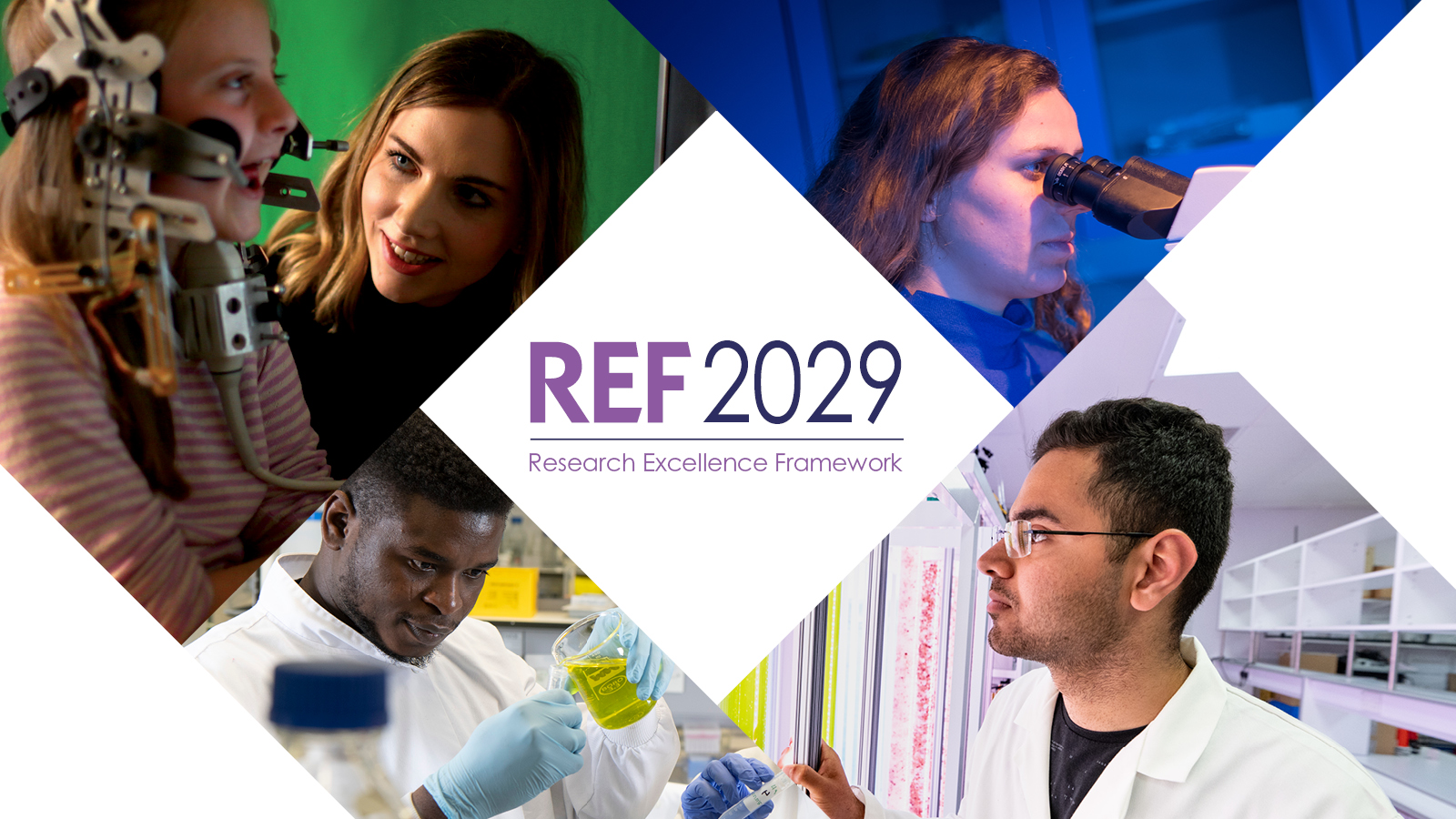
Photo: Queen Margaret University, University of Glasgow, University of the Highlands and Islands
The UK REF Team has announced the membership of the Research Diversity Advisory Panel and the People and Diversity Advisory Panel for the next research assessment exercise in 2029.
The Research Diversity Advisory Panel will ensure the exercise recognises diverse forms of research while the People and Diversity Advisory Panel will support the REF’s appreciation of diversity within researchers’ roles, careers and career stages. As their aims are strongly interlinked, the two panels will work closely together at certain times in the development of their work.
Scottish universities are represented on both panels. Professor Neil Chue Hong, Professor of Research Software Policy and Practice at the University of Edinburgh and Professor Debbie Tolson, Alzheimer Scotland Professor of Dementia at the University of the West of Scotland will both sit on the Research Diversity Advisory Panel. The People Diversity Advisory Panel will benefit from the membership of Professor Doris Ruth Eikhof. Professor Eikhof is Professor of Cultural Economy & Policy at the University of Glasgow.
Rebecca Fairbairn, REF Director, said: “Our new advisory panels will embed knowledge and expertise on the diversity of people, approaches to, and forms of research that are essential to the vitality of the UK’s research base.
“We are delighted to have been able to build panels full of people with the skills and experience needed to shape our criteria-setting and assessment processes from all four nations and from a variety of institutions.
More information, including the full list of members for both panels, is now available on the REF 2029 website.

Photos: University of Aberdeen, University of Glasgow, University of St. Andrews
The latest Times Higher Education (THE) World Rankings feature three Scottish universities in the top 25 institutions in the UK.
All three have also achieved a top 200 ranking in the world. The Times Higher Education World University Rankings 2025 include more than 2,000 universities from across 115 countries and territories.
The University of Edinburgh stays as the 5th ranked university in the UK and has moved up one place into 29th in the world. The University of Glasgow remains 10th in the UK list and also stays 87th internationally, while the University of St Andrews is up from 25th in the UK to 24th and up from 193rd in the world listings to 185th.
The University of Oxford leads the THE World University Rankings 2024 for a ninth consecutive year.
Times Higher Education analysis of the data behind the results shows Chinese universities edging closer to the top 10 with Tsinghua University and Peking University at 12th and 13th respectively.
Brazil, Saudi Arabia and the United Arab Emirates all join the top 200 list – highlighting the rise of emerging markets in higher education.
The full results and analysis of the rankings are available on the Times Higher Education website.

Photo: University of Edinburgh
The annual Converge Awards represent the pinnacle of Scottish academic innovation.
They celebrate how groundbreaking ideas and world-class university research come together in Scotland to tackle some of the world’s most complex challenges. This year’s finalists included projects around climate change, pollution and food security.
This year’s finalists competed across four challenge categories; Converge, Create Change, Net Zero and KickStart.
Solomon White of SEASAT from the University of Edinburgh won this year’s KickStart Challenge award and £10,000 with Jillian Gordon of Ovation Agriculture from SRUC runner up. The Create Change Challenge Award was won by Jawahir Al-Mauly of Ujamaa Spice from the University of Edinburgh and took home £30k. KEPSoft Collaborative from the University of Glasgow came runner up.
In the Net Zero Challenge category, Alexander Speakman of E.V.A Biosystems from the University of Edinburgh won with the SolarSub project from the University of Edinburgh runner up.
Finally the Converge Challenge Award was won by Monchil Vasilev of inProcess from the University of Strathclyde with their real-time welding inspection system using ultrasonic waves to detect defects, boosting productivity and reducing carbon. The runner up in the category was PCAD from Strathclyde University.
The event was attended by university principals, business leaders, entrepreneurs and investors. Amongst the speakers were Deputy First Minister of Scotland, Kate Forbes; and Professor Andrea Nelson, Pro Vice-Chancellor of Research at Glasgow Caledonian University.
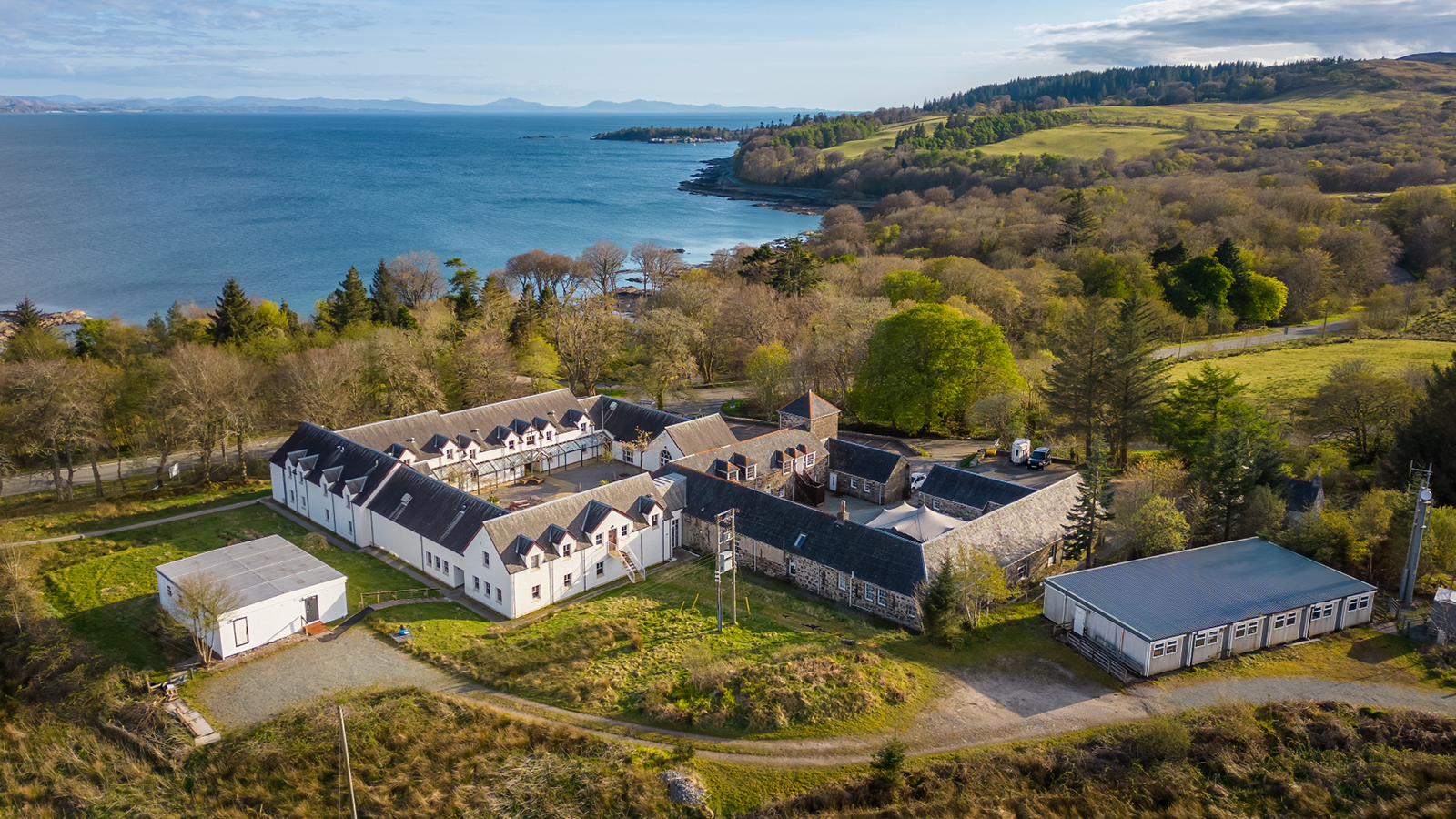
Photo: Sabhal Mòr Ostaig UHI
Baseline 2024 will create the first ever strategic baseline for the entire college estate in Scotland and is a major piece of collaborative work between SFC and the college sector.
The results of Baseline 2024 will inform the development of the national College Infrastructure Investment Plan which will, in turn, provide the basis for prioritising future investment decisions.
Colleges across Scotland are currently contributing to the Baseline 2024 data collection exercise using specially designed software. The exercise is supported by SFC’s technical partner, AtkinsRéalis, and the deadline to submit information is 1 October.
Progress toward the successful completion of Baseline 2024 has been encouraging with 21 of Scotland’s 24 colleges already engaged in the process through workshop events, webinars and drop-in sessions. Nineteen colleges are currently at the data entry stage.
Speaking ahead of the October 1 deadline, Ursula Lodge, SFC’s Deputy Director for Institutional Sustainability and Capital, said:
“The development of a national college infrastructure investment plan is an incredibly complex and challenging piece of work, and its success depends entirely on collaboration, cooperation, and co-creation with our colleges.
“We are very grateful for all the effort colleges are putting into the Baseline 2024 exercise. Colleges should now use the remaining time to ensure their information and data contribute towards a full sector-wide understanding of the college estate. This will enable SFC to progress the Infrastructure Investment Plan.”
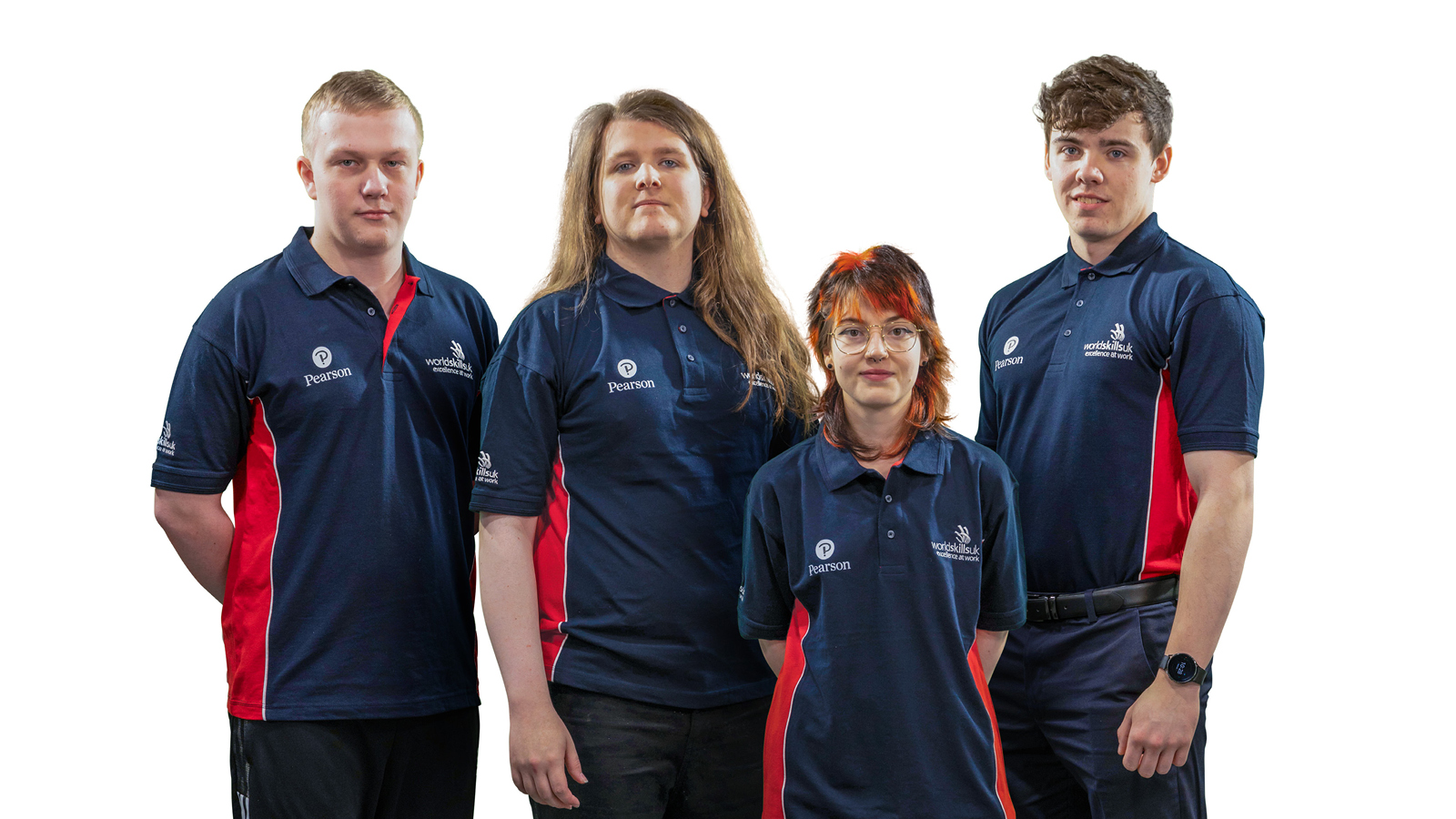
Two Scottish students have won coveted medallions for excellence at WorldSkills Lyon, an international competition for the recognition and promotion of the value of skills.
WorldSkills UK, a four nations partnership between education, industry and UK governments, uses the insight it gains from competitions such as WorldSkills Lyon to advance high quality training standards.
Over 1,500 young people from 69 countries competed over four days of tough competition in 62 different skills in an event watched by over 250,000 spectators.
Four Scottish competitors – Nathan Young, Finley Graham, Yasmin George and Danny McBean – were amongst the 31 young people competing for Team UK. Nathan and Finley were both awarded medallions for excellence.
Nathan Young, from East Kilbride received his training in Mechanical Engineering and Computer-Aided Design at New College Lanarkshire and the University of the West of Scotland. Finley Graham, whose training has been provided by the City of Glasgow College and Glasgow Caledonian University, comes from Airdrie and competed in the IT Network Systems Administration category.
Ben Blackledge, Chief Executive, WorldSkills UK said:
“High quality skills development is crucial to growing the economy, and Team UK’s medal-winning performance in front of a global audience sends a strong message that the UK is a world-class place to invest, develop talent and create jobs.”

SFC’s Interim Chief Executive, Martin Boyle, and Director of Finance, Richard Maconachie, have joined Scottish Education Secretary, Jenny Gilruth and Minister for Higher and Further Education, Graeme Day, in a visit to the Dunfermline Learning Campus.
The new Dunfermline Learning Campus is an innovative, integrated and collaborative venture to relocate Fife College’s Dunfermline Campus, St Columba’s RC High School and Woodmill High School to a new purpose-built campus.
The visit follows a topping out ceremony in May when school pupils helped the Education Secretary lay a plinth to mark a major milestone in the construction of the new campus.
Speaking during the latest visit, Education Secretary, Jenny Gilruth, said:
“It is important that students are able to access opportunities to further education as easily and effectively as possible. It is also crucial that their learning environments are fit for the future and support Scotland’s net zero ambitions. That is why the Scottish Government is providing up to £154.5 million in capital investment to support Fife College’s vision for the Dunfermline Learning Campus.
“I have no doubt that these state-of-the-art facilities will be a huge asset for students in supporting the development of their skills, whilst playing an important role in supporting the economy of both the local area and more widely across Scotland.”
Martin Boyle, Interim Chief Executive of the Scottish Funding Council, said:
“As Scotland’s tertiary education funding body, we’re committed to making it as easy as possible to navigate the pathways between school, college and university.
“The Dunfermline Learning Campus will be unique in its ability to support people as they develop their potential from secondary school onwards, and go on to contribute to society and the economy.
“As a modern, flexible and low carbon campus it will also be at the forefront of exciting changes around where and how we learn, and will become a fantastic asset to the Fife region.”
The Principal of Fife College, Jim Metcalfe, added:
“The college is proud to be the biggest public sector build with net zero aspirations. From working with industry leaders to train the next generation of green workforces, to the construction of its new campus, we’re future proofing learning for generations to come.”